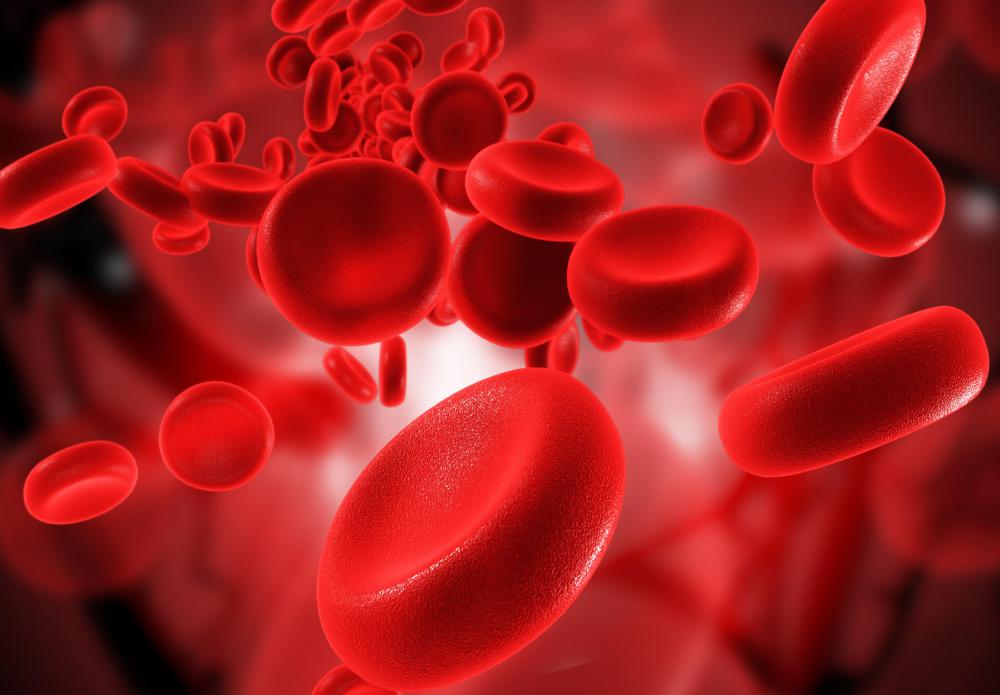At TheHealthBoard, we're committed to delivering accurate, trustworthy information. Our expert-authored content is rigorously fact-checked and sourced from credible authorities. Discover how we uphold the highest standards in providing you with reliable knowledge.
What is Red Ginseng?
Red ginseng, also called Panax ginseng, Korean ginseng or Asian ginseng, is a perennial plant native to the mountains of Korea and China. Red ginseng is related to, but not the same as, American ginseng. Herbalists often use the root of the Panax ginseng plant to counteract fatigue, improve memory and performance, and treat a number of medical conditions ranging from the common cold to diabetes. Panax ginseng has been used in traditional Chinese medicine for more than 5,000 years. Western medical studies verify that the roots of the Panax ginseng plant contain beneficial plant compounds, including antioxidants and ginsenosides, which may offer a number of health benefits. It typically is available at health food stores in tablet, capsule, tea or tincture forms.
Red ginseng is considered an adaptogen, meaning that using it regularly may help to improve mental and physical adaptability. This means that ginseng may improve performance and stamina, memory, reflexes and coordination as well as help increase energy levels and reduce stress. Ginseng is often used traditionally as an aphrodisiac or as a treatment for male erectile dysfunction. It's also said to promote cardiovascular health, support immune function, protect against diabetes, normalize blood pressure and prevent Alzheimer's and cancer.

Research into the properties of red ginseng has shown that it may be beneficial in the treatment of coughs, rheumatism, gout, double vision and neuralgia. It may also help with diabetes, anemia insomnia, hypertension and hypotension. Ginseng may also support cardiovascular health by reducing blood clots and lowering cholesterol. Diabetics may find that ginseng can help keep blood glucose levels low. The root may also help the immune system fight viruses, and may have benefits in the treatment of HIV-1 as well as antibiotic properties. The antioxidants in ginseng may help prevent cancer. Ginseng also may help protect the liver and other cells of the body from the damaging effects of radiation, alcohol, drugs and other toxins.

Red ginseng is different from, but related to, American ginseng, or Panax quinquefolium L. American ginseng contains the same antioxidants and ginsenosides found in red ginseng, but is believed to have a cooling effect on the body. In traditional Chinese medicine, Panax ginseng is said to have an opposite, warming effect on the body. Neither plant is at all related to Siberian ginseng, which is not in fact a member of the genus Panax and does not contain ginsenosides, the primary compound found in ginseng.
Research suggests that using red ginseng regularly over the long term may offer the most health benefits. Recommended doses for healthy adults typically range between 500 and 1500 mg per day. Therapeutic doses may be as high as 2000 mg per day.
AS FEATURED ON:
AS FEATURED ON:

















Discussion Comments
Red ginseng extract is fantastic. I've been taking it as a supplement for the past month. I'm so energetic and my mood has greatly improved. I've been experiencing fatigue for a while now due to a very busy and demanding schedule. I also suffer from diabetes which causes fatigue. Red ginseng has given me energy to get through the day. I also don't feel as depressed as I used to. I haven't noticed a difference in my blood sugar, but I may need to take the supplement for longer to see those effects. Overall, I think that red ginseng is a keeper.
@fBoyle-- Korean and Chinese ginseng are the same thing, they are just grown in different places. Since the plants grow in different regions and soils, some people think that there may be some difference between them. But technically, they are the same plant.
Ginseng can either be white or red. This has nothing to do with it being American, Chinese or Korean ginseng. White ginseng is dried immediately. Red ginseng is steamed first and then dried under the sun. Red ginseng is slightly stronger/more potent for this reason.
As for Panax, this is simply the Latin name for ginseng.
Red ginseng is said to be superior to white ginseng and Chinese/Korean ginseng is said to be superior to American ginseng in benefits. I recommend Korean red ginseng tea.
So all Korean and Chinese ginseng are red ginseng? Why are there so many different names in circulation? It's confusing.
Post your comments